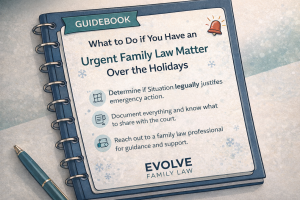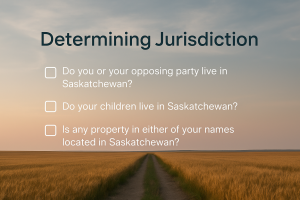January 2022 marks the eighteenth annual National Stalking Awareness Month (NSAM), an annual call to action to recognize and respond to the serious crime of stalking behavior. Stalking falls under the updated definition of family violence in the Divorce Act and Saskatchewan’s Children’s Law Act, in addition to being a serious criminal offence categorized as Criminal Harassment.
Stalking is often a form of Intimate Partner Violence and can be thought of as the persistent, unwanted following or watching, or the use of electronic devices to monitor. Almost 2 million Canadians experienced stalking in the five years preceding the 2014 General Social Survey on Canadians’ Safety (Victimization). This represented about 8% of women and 5% of men aged 15 and older. As this suggests, stalking can be both physical, such as following someone to work or other activities, as well as electronic. With the rise of social media, it is becoming increasingly common for a perpetrator to use tracking applications such as “find my phone” to keep tabs on their partners, former partners, or soon-to-be former partners.
As family law practitioners (lawyers and support staff), it is not uncommon for us to discover some form of stalking within the files we manage. From the first contact with our office, we screen for family violence. One of the reasons we include asking about stalking behavior in our Domestic Violence screening is that stalking behavior can not only be an indicator that there is the presence of family violence but can be an indication that a situation may be escalating in conflict. This is especially so if the stalking behavior begins or escalates in the post-separation period.
As Family law lawyers our perspective is based on the information we gather from our clients and our experience and knowledge about stalking behaviours. These assists us in considering:
First and foremost,
- if the client feels they are in an immediate danger. In this case, we can devise a safety plan and put them in touch with our community partners;
- if the client should speak to the police about possible criminal charges;
- if we are looking at bringing a court application, if we should include asking for no contact provisions or a restraining order from the Court;
- if shared parenting or joint decision making is appropriate or whether it is in the best interests of the child to pursue sole decision-making and primary or sole parenting;
- if the information is relevant to concurrent criminal, child protection or immigration proceedings.
Oftentimes, as alluded to above, stalking behavior can escalate in the post-separation period. Research has found that abusers seek ways to reassert their power and control after their partner leaves them. This is thought to be because the abuser no longer has access to their partner in the privacy of the home, they may not be able to engage in other forms of abuse as frequently as prior to separation. To compensate, criminal harassment and stalking can increase, and other threats may become more common. Particularly, the perpetrator may focus on the survivor’s workplace as this is a consistent and easy place to find them.
For those thinking of leaving a situation where family violence is present, it is important to first have a safety plan. Ensure that there is somewhere safe you can stay in the immediate separation period, such as a friend, family member, or shelter. In order to specifically avoid stalking and/or harassment, you can try to find a safe place that is less familiar to your partner. More information is available at: https://pathssk.org/
For those concerned about their family legal obligations, you can book a consultation with a lawyer at Evolve Family Law or another firm at any point in the process. It may give you more peace of mind to speak to a lawyer before leaving the relationship, especially if there are children involved. Common questions that clients may have in this situation include:
- Do I have to facilitate any parenting time with my abusive partner?
- Do I have to tell my partner where I am living with our children if I have fears they may stalk or harass us?
- Do I have to answer their phone calls/talk to them/update them on our child?
If we’re looking to proceed through the Court to resolve a family law matter, it is very important that we know exactly what behavior is happening. Even with the expansion of the definition of family violence, it is oftentimes still difficult to prove to the Court that family violence, specifically stalking is happening. The particular problem with stalking, in contrast to strictly harassing behavior, is often our client, the victim, has no hard “proof” that they are being stalked. This compounds the problem, especially if the parents are trying to share parenting, and therefore are in some form of contact and have to share the same physical place at times. We typically recommend any client with safety concerns document what they can and contact the Police immediately. Having communications with the Police especially those documented (such as in a police report) goes a long way in establishing family violence with the Court.
When it comes to stalking, the Court will typically recognize the behavior as stalking if the perpetrator is repeatedly unexpectedly in the physical presence of the other party, attending at places of activities, or places of Worship. Another common example of stalking behavior is following the other party through various public places. The Court may not consider simply driving past the residence of the party or other family members as stalking, but reasonability of such interactions can be expected to be assessed.
If you think you may be experiencing stalking or have immediate concerns about intimate partner violence and are thinking of leaving an abusive relationship, contact the police. If you would like to discuss how family violence, including stalking, may affect your family law matter, you can complete our conflict search form found here to start the quick process of booking a consultation with one of our lawyers.








